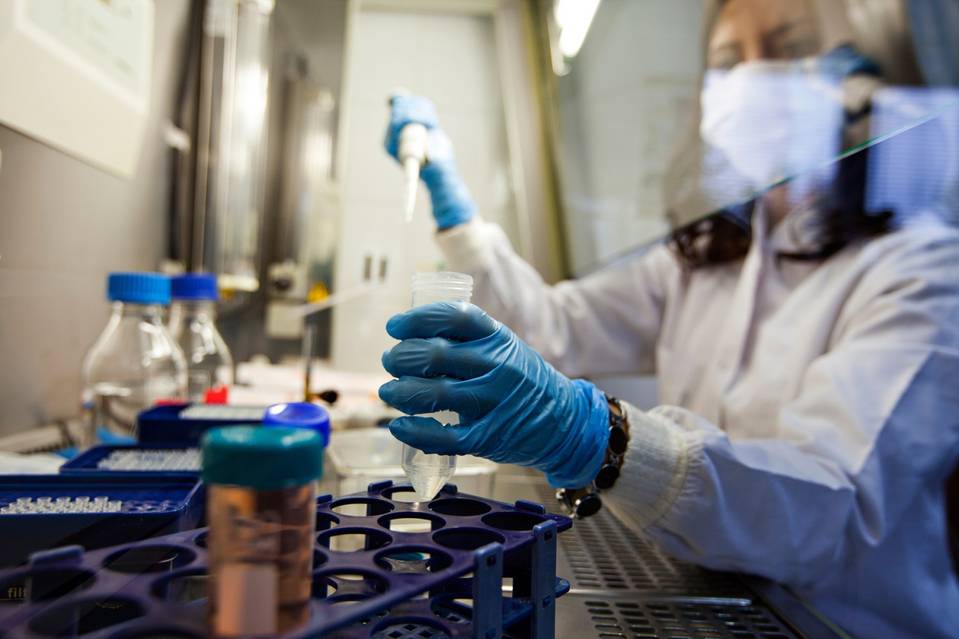
Audience
- Sentiment: positive
- Political Group: moderate
- Age Group: all age groups
- Gender: both genders
Overview
- A new mRNA vaccine shows promise in treating pancreatic cancer, improving immune response and patient outcomes.
- Phase 1 clinical trials indicate that the vaccine can lead to longer recurrence-free survival in patients.
- The research highlights the potential for mRNA technology to revolutionize cancer treatment more broadly.
A New Hope: The Development of a Cancer Vaccine for Pancreatic Cancer
Cancer is one of the scariest words in the medical world. It strikes fear in the hearts of many because it can be so severe and life-changing. One type of cancer that poses a particularly fierce challenge is pancreatic cancer, specifically pancreatic ductal adenocarcinoma (PDAC). When we talk about pancreatic cancer, we’re discussing a formidable illness that is notorious for being caught late and having low survival rates. But what if there was exciting news on the horizon—a breakthrough that could change everything? Fortunately, researchers are making significant strides with a cancer vaccine that targets PDAC, offering a glimmer of hope to patients and their families.
What Makes Pancreatic Cancer So Tough?
Before diving into the intricate details of this vaccine, it’s essential to understand a little more about pancreatic cancer. PDAC is often called a silent killer because it often shows no symptoms in its early stages. By the time symptoms do appear—like unintentional weight loss, jaundice (yellowing of the skin and eyes), and abdominal pain—cancer may have already spread significantly, making it very challenging to treat.
One of the most disheartening aspects of pancreatic cancer is its low survival rates. According to statistics, the five-year survival rate for someone diagnosed with PDAC is less than 10 percent. This means that out of every 100 people diagnosed, only a small number will live for five years or longer. The traditional treatments—like surgery, chemotherapy, and radiation—often do not work as well as hoped. As a result, researchers have been tirelessly searching for innovative ways to turn the tide against this brutal disease.
The Promising Advance: A New Vaccine
Recently, scientists have been exploring the possibilities of mRNA vaccines, similar to the ones that became widely known during the COVID-19 pandemic. This groundbreaking new vaccination approach has sparked interest in the cancer research community, particularly for targeting tough cancers like PDAC. A phase 1 clinical trial was conducted to test a specific mRNA vaccine called autogene cevumeran.
So why mRNA? The mRNA in vaccines works like a blueprint. It instructs our cells to create pieces of the virus or tumor that the immune system can recognize and attack. This vaccine, combined with chemotherapy and a drug known as atezolizumab (which helps the immune system recognize and attack cancer cells), was designed specifically to push the immune response into high gear.
The Trial: What Were The Results?
The researchers gathered a group of patients diagnosed with PDAC and administered the individualized RNA vaccine. Their goal was to see if the vaccine could spark a strong immune response. And they found something amazing: the vaccine prompted the production of CD8 T cells—often referred to as “killer T cells” because they can identify and destroy cancer cells.
What was particularly encouraging is that patients who developed these vaccine-induced T cell responses showed significantly longer recurrence-free survival. This means that the cancer did not return for a longer period compared to those who did not respond to the vaccine. Think about it: for those battling this kind of cancer, every extra month, and especially extra years, matter immensely.
The Durability of the Immune Response
One of the study’s most exciting discoveries was the longevity of the immune response. Many of the T cell clones that were generated by the vaccine persisted for several years, showing a median estimated lifespan of an extraordinary 7.7 years! That’s quite impressive for immune cells! What this indicates is that these T cells could act like memory T cells—able to remember how to fight the cancer if it tries to return.
Imagine if your body had a memory bank that could recall how to eliminate the specific cancer without much struggle! This discovery is significant because PDAC often has a low mutational burden, which means that the tumor isn’t hiding behind many mutations—a hallmark trait that usually helps tumor cells evade the immune system. This newly developed vaccine could outsmart that defense mechanism, proving that even cancers with fewer mutation challenges can be targeted effectively.
What This Means for the Future
The research on this mRNA–lipoplex vaccine could pave the way for an exciting future in cancer treatment. The results suggest potential not just for pancreatic cancer but for various cancers, as the approach could enhance anti-tumor immunity in many situations. If this vaccine moves forward in clinical trials and receives regulatory approval, it could offer patients a new and powerful option for preventing cancer recurrence.
The idea that technology, innovation, and science can come together to combat a fierce disease like pancreatic cancer is incredibly uplifting. It shows us that researchers and doctors are ceaselessly committed to finding solutions and hope for patients and their families.
Why This Breakthrough Matters to Everyone
While this breakthrough is specific to pancreatic cancer, it symbolizes something far more significant: the potential of medical progress to improve lives. Just as the advancements made during the global fight against COVID-19 brought forward new ways of thinking about vaccines, this research opens doors in cancer treatment, creating optimism in a field often marked by discouragement.
Each step forward not only impacts those suffering from a specific illness but represents hope for everyone battling cancer or other severe conditions. As we see new advancements like this one, it inspires future scientists, doctors, and innovators to keep pushing the boundaries of what’s possible.
Your Thoughts Matter!
Now that we’ve explored the exciting developments in cancer treatment through this new vaccine against pancreatic cancer, what do you think? Does this news encourage you about the future of cancer treatment? Share your thoughts in the comments! It’s important to discuss these advancements and what they mean for patients and families. Your opinion could inspire someone else dealing with a similar situation!






